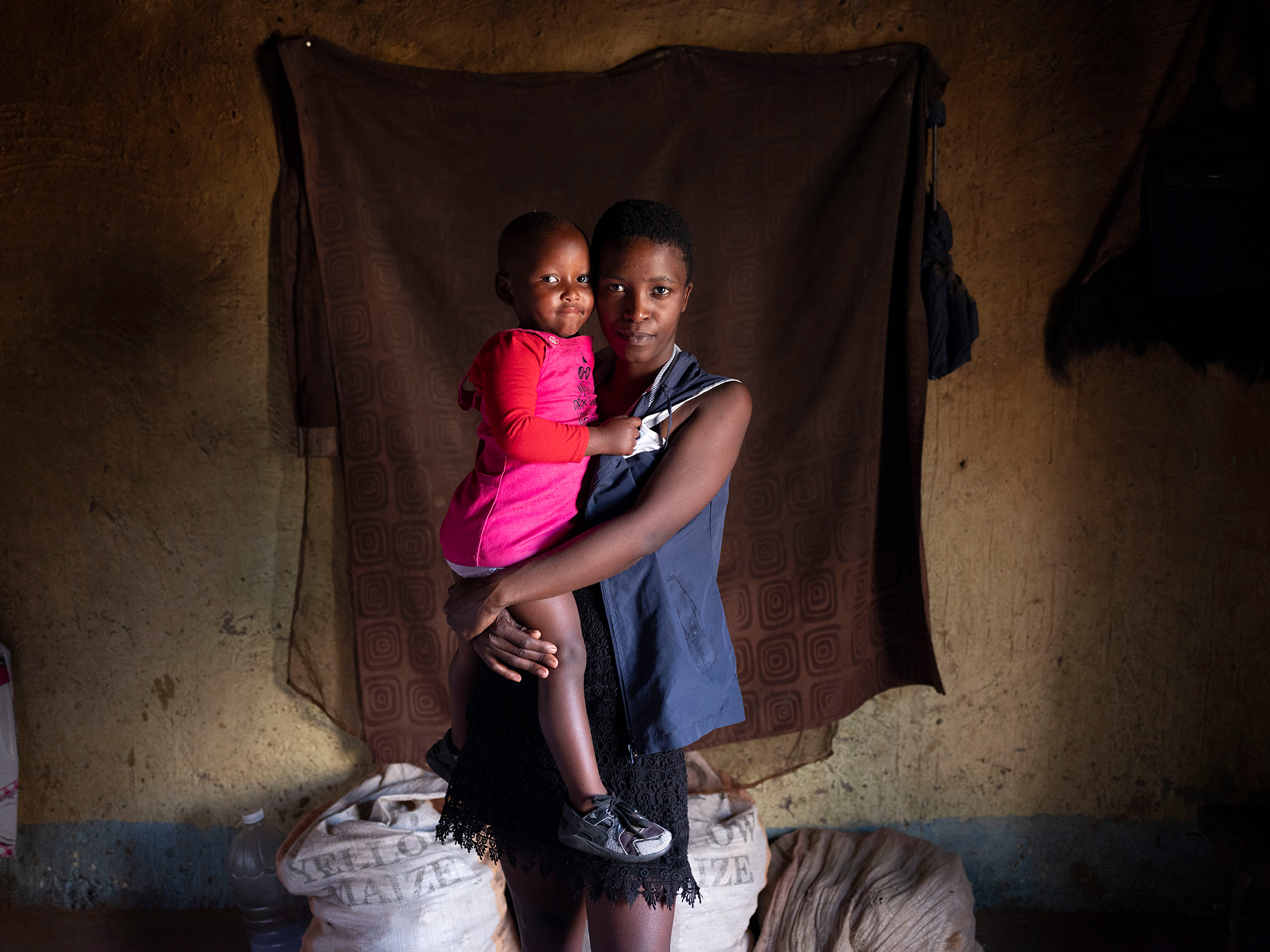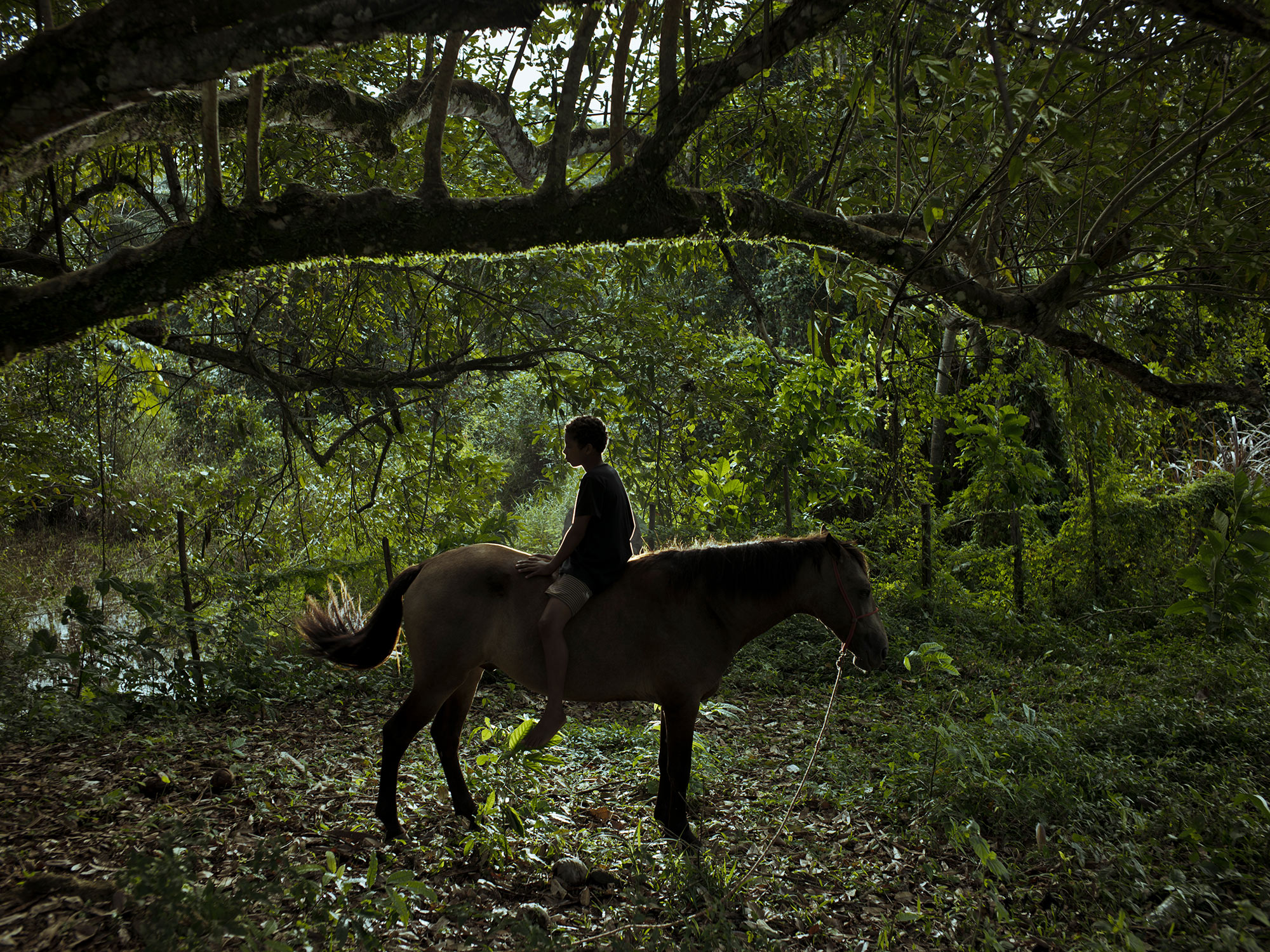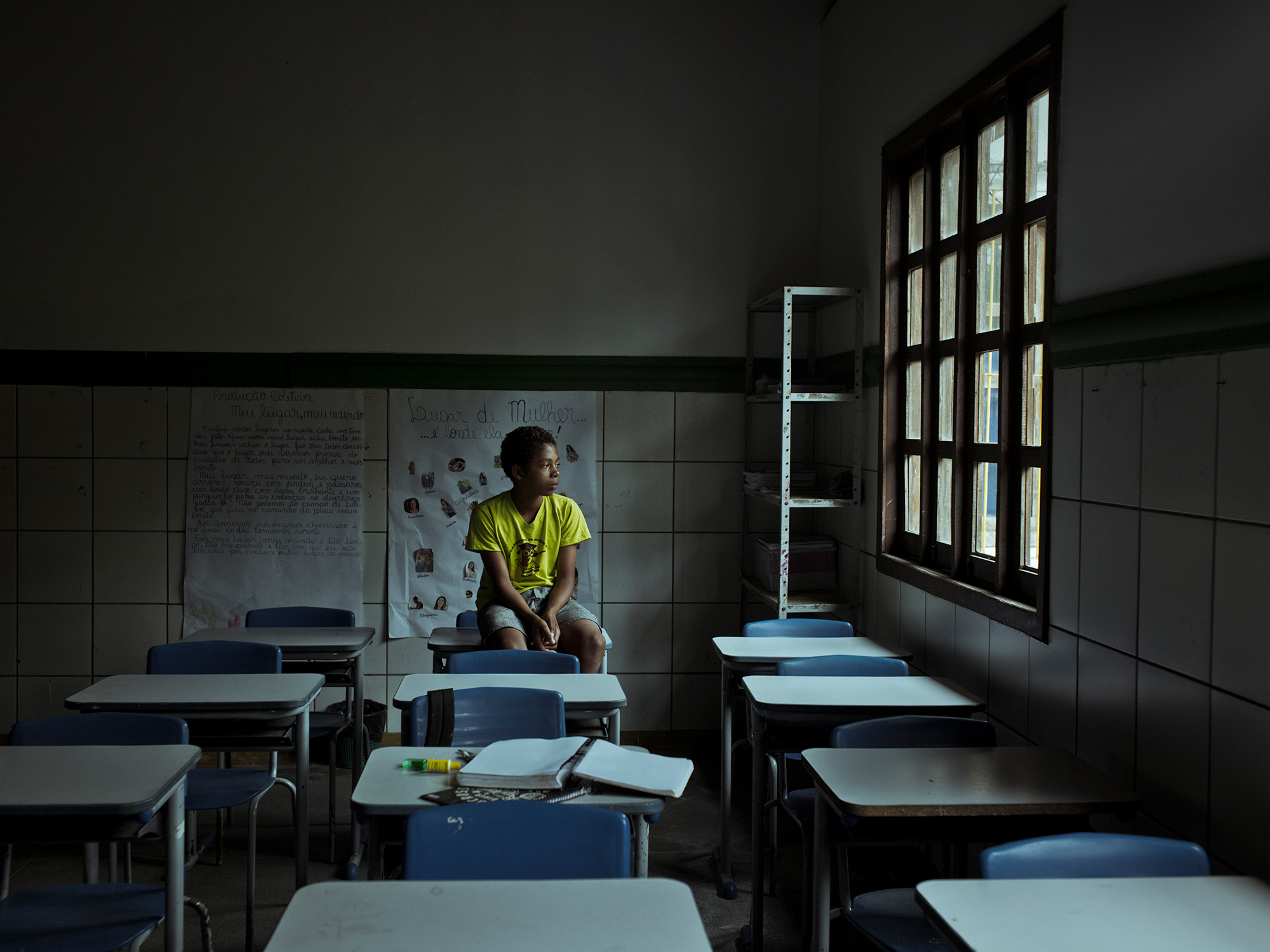A visual journey of COVID-19 and children across six countries
More than any crisis of the last decades, the COVID-19 pandemic has redefined childhood on a global scale. From its effect on mental health and increased vulnerability to abuse, to its disruption of education, the catastrophic impact of the COVID-19 pandemic on children must be fully examined and redressed. Across the globe, too many children remain in limbo, eager to move forward with their dreams but with little control over their present realities. While their struggles are undeniable, so is their resilience and desire to participate in rebuilding a better future for every child.
In collaboration with the renowned Magnum Photos agency, UNICEF presents an in-depth look at the pandemic experiences of children and young people across six countries. As UNICEF commemorates its 75th year, we are reminded that our ongoing global response to COVID-19 must match the needs and the hopes that we see in these stories.
The School of Stars
Lesbos, Greece

Students leave after attending an English lesson at the "School of Stars."

Manija teaches an English lesson to children in the Kara Tepe camp.
"In the [refugee] camp there were no cleaning and hygiene tips. I want to grow up so I can be useful for the community."
13-year-old Manija and her friend Atefe refuse to let the pandemic interfere with their goals. With schools temporarily closed, and no access to online learning systems, the children of Moria were left without the ability to continue their schooling. Manija and Atefe had time on their hands and a passion foreducation. They saw an information gap.
Nearly every afternoon for roughly four hours per day, the two taught English and Persian to over 20 children. Beyond teaching both English and Persian alphabets and vocabulary, they taught the young School of Stars attendees other vital skills: how to 'treat' the camp water, how to wash their hands, and how to sanitize their families' tents with the limited resources available in the camp. The school became a site of psychosocial support and provided a sense of belonging. Learn more about the 'School of Stars'.
All Images © UNICEF/Enri Canaj/Magnum Photos
Unsettled in Istasyon
Mardin, Turkey

Lara (left), 12, and her younger sister, Celile, 5, in their home. Their father, Celal, works in construction but, like many in Istasyon, has been jobless since the beginning of the COVID-19 pandemic and unable to find work. The family survives thanks to the assistance they receive monthly from Turkish Red Crescent.

Arya, 6, poses near her school in the Istasyon neighbourhood of Mardin.

Norma, 13, plays with her bird at home.
"I'm lucky I have phone and internet. I can continue with online education."
Norma, 13, is the only one of her 7 siblings in Mardin, Turkey who has been able to continue her education during the pandemic. For Syrian refugee children in Mardin, their new schools were more than just a place to learn – they were also a source of socialization and sense of belonging. There, they met Turkish children, and learned their language. Even if they went home to the Syrian Arab Republic someday, they took solace in shared Turkish community life.
When COVID-19 came to Mardin, school closures threatened to halt their progress.
Explore how Syrian refugees like Norma are adapting to a new country in the wake of COVID-19.
All Images © UNICEF/Emin Ozmen/Magnum Photos
Carrying the Hope
Eastern Cape, South Africa

Nomakhosazana and her son, Marlon, in their home.

Bunam and her Aunt Cepheni smile for a posed portrait.
"We didn’t get infected by the virus but it has affected us in so many ways."
Increasing malnutrition. Reduced access to post-natal care. Upended livelihoods. Motherhood has taken unexpected turns during the pandemic in South Africa. The government's monthly COVID-19 social relief and child support grant has provided some relief, but for three mothers in Eastern Cape, their needs are greater.
All Images © UNICEF/Lindokuhle Sobekwa/Magnum Photos
Before, I Was Different
Lombardy, Italy

Anna plays the guitar in her room. "It's been more than one year now, but I'm slowly getting back the rhythm."

Anna in her room.
"COVID-19 has left a very profound change in the way I live. I now fear physical contact, and I’m conscious that my reactions to the world have very much changed."
The pandemic is challenging children's mental health in extraordinary new ways. In Lombardy, Italy, COVID-19 halted 14-year-old Anna's teenage passions. She loved taekwondo, but stopped practicing during lockdown. She was also taking guitar and music lessons, but when the strings of her guitar broke, she couldn't replace them. Her friendships changed, and the dull thud of boredom coloured her every day. But Anna is fighting to get her rhythm back, overcoming fear through self-expression –breaking the stigma around mental health.
Learn more about how Anna is coping.
All Images © UNICEF/Alex Majoli/Magnum Photos
Waiting for Nothing
Itacaré, Brazil

Caio sits for a portrait atop a neighbour's horse.

Caio sits for a portrait in a classroom at his school.
"Because there's no school, and I can't visit anyone, I spend a lot of time walking by myself. I also don't know what I want to become in the future."
School closures in Brazil have left children like 12-year-old Caio in limbo, waiting for nothing, and feeling apathy toward the future. One week after schools closed last March, Caio and his classmates received an envelope with instructions on how to do their lessons. But Caio does not have internet. The family had one tablet computer. Once the tablet broke, the family lacked the money to repair it.
For Caio, the pandemic days pass slowly. He explores, rides his bike and fishes. Often, Caio feels a lack of control over his future that has become more pronounced amidst the pandemic. But he is hopeful.
Explore how the pandemic has reshaped Caio's daily life.
All Images © UNICEF/Cristina de Middel/Magnum Photos
Coming of Age, Paused
New York City, USA

Julissa’s room in Brooklyn, New York, USA, where she has spent most of the pandemic.

Elaine does her daugther Julissa's hair in the living room of the family home.
"One good thing that came out of [the pandemic] was that the world literally stopped. I’m forced to deal with my anxiety and depression head on and learn things about myself."
For 18-year-old Julissa, coming of age in Brooklyn, New York, during the pandemic signaled a loss of her rites of passage into adulthood. Schools were closed, which meant she didn't see friends, attend senior prom or have a traditional graduation ceremony. Her excitement at finishing school and going to college was diminished.
Despite the mental and economic ramifications brought on during New York City's standstill, Julissa persevered.
Learn more about how she's combatting her anxiety and depression.
All Images © UNICEF/Peter Van Agtmael/Magnum Photos
This exhibit was launched in November 2021

